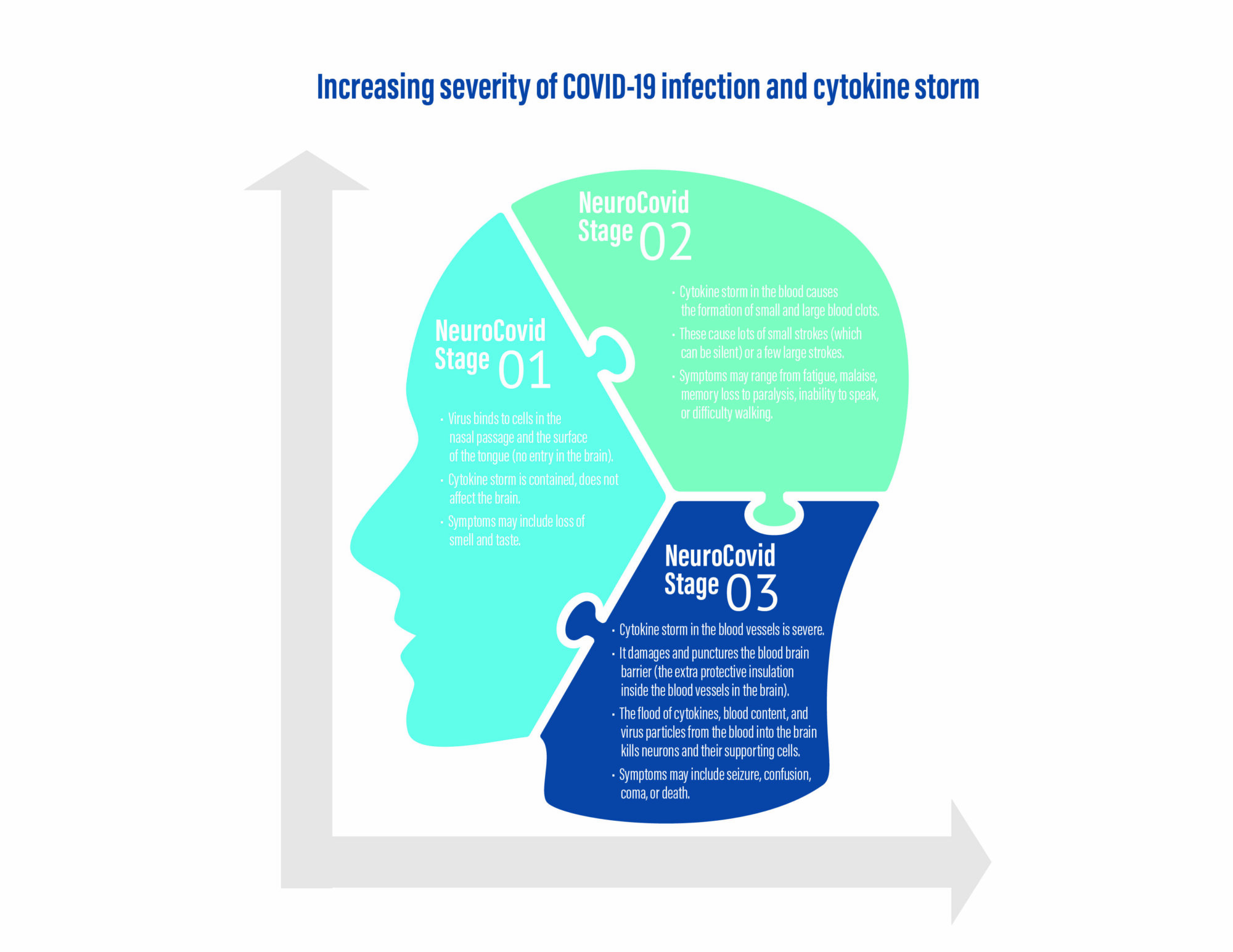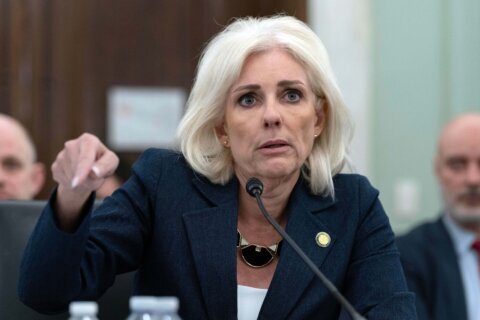People with serious cases of COVID-19 can develop mini blood clots in the brain that cause what are known as silent strokes, resulting in damage. A Northern Virginia neurologist believes damage affecting memory and thinking can be reversed.
“If you have had COVID-19 infection and you’ve left the hospital and you think that your memory is not as good, there are many things you can do,” said Dr. Majid Fotuhi of the NeuroGrow Brain Fitness Center, who has studied the condition.
Fotuhi described COVID-19’s effects on the brain, nerves and muscles in a blog containing information included in a paper he co-authored that will be published in the Journal of Alzheimer’s Disease.
“Regardless of how your brain has been damaged, there are certain ways you can boost your brain performance and boost your brain health,” Fotuhi said. “We help patients who’ve had concussions or mini strokes and more than 80 to 90% of them have remarkable improvement in their brain function.”

The three most important ways to boost brain performance and health involve exercise, stress and sleep.
- Exercise more rigorously than just a walk in the park. “When you do vigorous exercise, you literally grow the size of your brain.”
- Reduce toxic stress. “Try to limit stress by meditation, by trying to realize that life will be fine in the future or see a therapist.”
- Make sure to sleep seven to eight hours a night. “People who sleep fewer than six hours a night are at increased risk for strokes and are more likely to develop Alzheimer’s disease.”
“If you do those three things, you will have a better brain whether or not you’ve had COVID-19,” Fortuhi said.
He also includes other relevant factors and the following recommendations:
- Eat a heart-healthy Mediterranean diet.
- Consume OMEGA-3 fatty acids, DHA and EPA in fish oil supplements.
- Stimulate your brain by getting out of your comfort zone and learning something new.
“When you do all those six things, then you can make up for the fact that you had a few concussions when you were in college, or that you may have had some mini-strokes when you were in your midlife, or that you were infected with COVID and there was some impact of inflammation or mini-strokes in your brain,” Fotuhi said.
“The positive message is that if COVID effects your brain, there are many things you can do to reverse the damage,” he said.
- Sign up for WTOP alerts
- Latest coronavirus test results in DC, Maryland and Virginia
- Coronavirus FAQ: What you need to know
- Coronavirus resources: Get and give help in DC, Maryland and Virginia
- No indoor dining in Maryland’s Phase 2? Disappointed restaurants want change
- Prince George’s County megachurch reflects on potential reopening plans
- ‘What’s happening?’ How to help your children in stressful times
Looking for more information? D.C., Maryland and Virginia are each releasing more data every day. Visit their official sites here: Virginia | Maryland | D.C.








